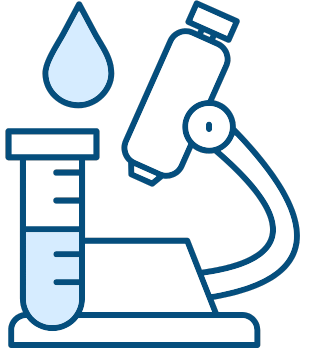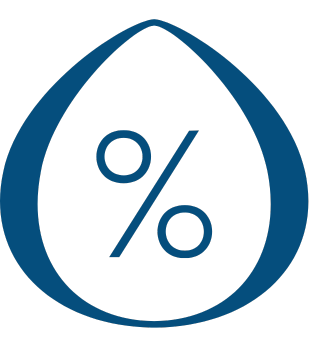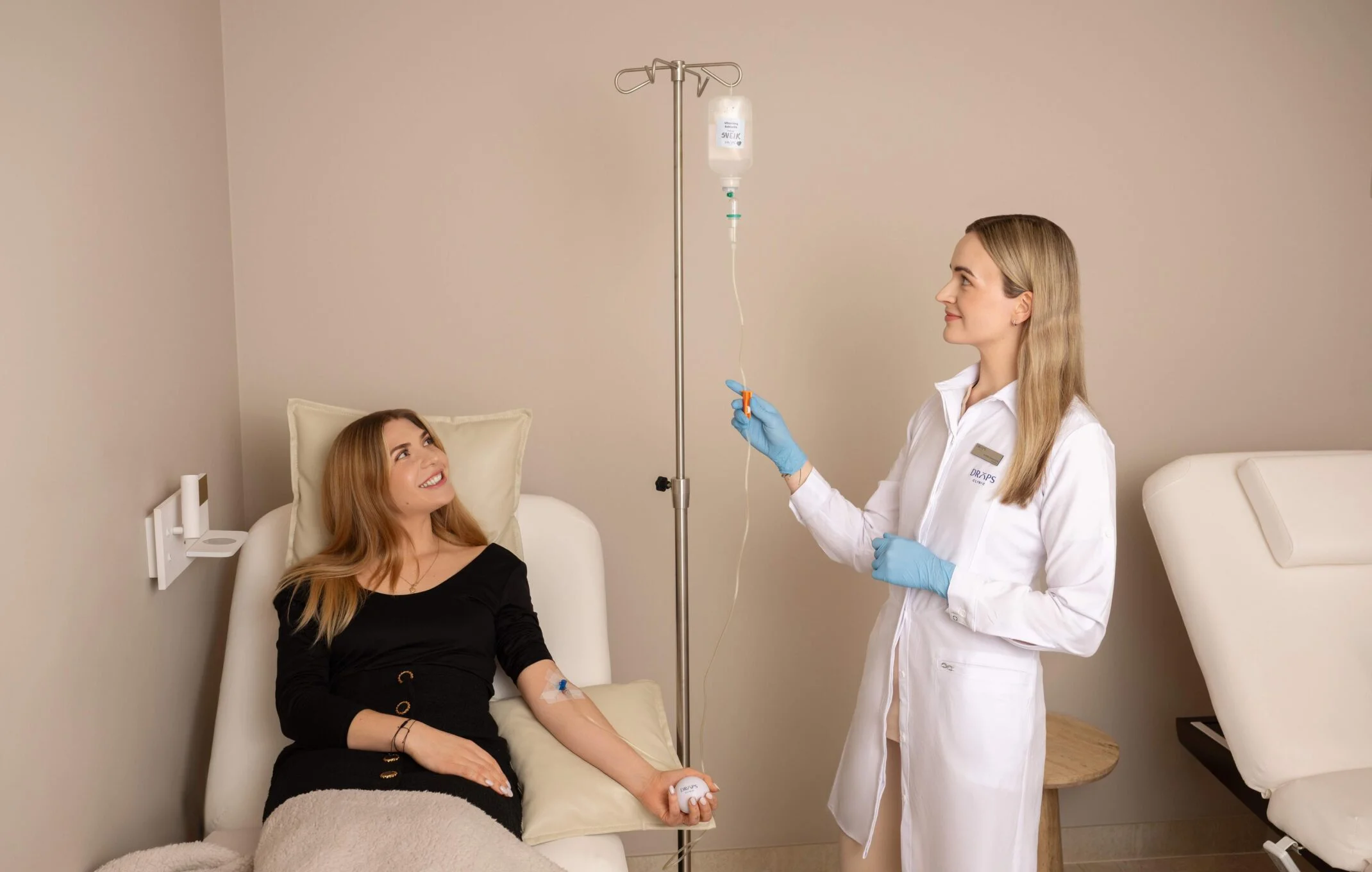Many people are looking forward to their upcoming birthday less and less, as the effects of ageing become more apparent every year. Reduced energy levels, insomnia, slower metabolism, problems remembering important dates or small everyday details – new health concerns keep cropping up as the years go by.
Although it is not possible to go back in time, we are increasingly hearing about different ways to slow down ageing. One of them is NAD+ or nicotinamide adenine dinucleotide supplementation therapy. NAD is a coenzyme that is essential for all living cells and plays a vital role in energy production and the regulation of various cellular functions.
The term “NAD” refers to the various forms of this coenzyme, including the molecules NAD+ and NADH. These molecules are not only vital for energy production, but are also involved in a number of other biological processes, such as DNA repair, oxidative stress and cellular signalling, all of which contribute to the healthy functioning of the cell and the control of aging. Changes in their levels in the body can have a significant impact not only on ageing but also on the development of chronic diseases.
In this article, we will discuss the differences between NAD+ and NADH and their benefits to the human body, explaining how the activity and balance of these molecules are vital for health and longevity.
What is NAD+ and how does it work in the body?
Nicotinamide adenine dinucleotide (NAD+) is a coenzyme that is formed from niacin, also known as vitamin B3. It is involved in redox reactions that are important for energy production. NAD+ also activates enzymes that depend on this molecule, such as sirtuins, CD38 and poly(ADP-ribose) polymerases.
NAD+ affects several key cellular functions including metabolic pathways, DNA repair, chromatin remodelling, cellular ageing and immune function. These activities are vital for maintaining overall tissue health and metabolic balance, which is important for healthy ageing.
As the body ages, NAD+ levels naturally decline – research shows that NAD levels in the body drop drastically after the age of 40, even by 50%. It is also suggested that increasing NAD+ levels can not only slow down the ageing process, but can also reverse some of the effects of ageing. Increasing NAD+ levels can restore cellular function, improve metabolism and strengthen the immune system, giving the body more energy and vitality.
For this reason, maintaining NAD+ is not only important in old age, but also in preventive health. New scientific discoveries also suggest that NAD+ may help to manage or even prevent certain chronic diseases such as hypertension or chronic kidney disease, making this coenzyme an important element in the prevention of disease.
How is NAD+ different from NADH?
NAD+ and NADH are two molecular variants that are essential for energy production in cells, the main difference being their oxidative states. In other words, they are different forms of the same molecules that act as electron carriers in cells. When a molecule is reduced, it accepts electrons and becomes NADH, whereas when a molecule is oxidised, it loses electrons and reverts to the NAD+ state.
These two forms form an important chain in the production of cellular energy. It is possible to imagine the NAD molecule as a vehicle that continuously transports electrons through the cell’s energy production pathways. When cells need energy, the NAD+ molecule starts its journey as an empty truck. Once it has acquired a hydrogen molecule, it transforms into NADH, which is like a loaded lorry full of energy. This process takes place in the mitochondria, the energy production centres of cells.
When NADH releases its electrons, it reverts to its NAD+ form and a new cycle is possible. This constant conversion between NAD+ and NADH is a key mechanism for the cells’ energy supply, ensuring that they are energetic and function efficiently. It is like a fuel that allows the cell to carry out a variety of functions from movement to synthesis, sustaining vital activity.
How can NAD+ supplements improve health?
NAD+ is critical for all cellular activities that occur during natural body processes. As the human body ages, NAD+ levels decrease, which starts age-related processes such as brain fog, impaired muscle function and slowed metabolism. NAD+ supplements are often presented as anti-ageing supplements, but in reality they act on the symptoms associated with ageing. Although human clinical trials are limited, there are some promising studies showing that NAD+ supplementation can have significant health benefits. Key benefits include:
- Increased alertness and energy.
- Reduced chronic fatigue.
- Increased metabolism.
- Improved skin condition.
- Better sleep.
- Faster recovery after intense physical activity.
- Hair and nail growth.
- Reduced symptoms of stress, anxiety, depression and PTSD (post-traumatic stress disorder).
- Natural detoxifier from alcohol and opiates.
It is important to note that supplements are not pure NAD+ in our bodies. These supplements are usually made from amino acids or vitamins found in common foods, such as L-tryptophan, which is found in cheese and chicken, and niacin, or vitamin B3, which is found in red meat and legumes. Another important form is nicotinamide riboside (NR), a form of vitamin B3 that helps maintain youthful levels of NAD+, important for cellular energy production.
Is NAD+ safe for your health?
Known for its natural origin, NAD+ therapy is considered completely safe for human health. However, as with any supplement, it is worth consulting your doctor before taking NAD+ so that you can choose the right dose and regimen for your individual needs.
Although the long-term use of high doses is still under investigation, no adverse side effects have been observed so far. NAD+ supplementation can provide more energy, improve metabolism and contribute to overall health. By consulting your doctor, you will be able to use the full potential of these supplements and enjoy their health benefits. This is especially important for people with health problems or who are taking other medications, so that you can properly combine supplementation with your current medication or supplement regimen to get the most out of your health.
Where to find NAD+ in Lithuania?
In Lithuania, NAD+ therapy is offered by Drops Clinic family clinics in Vilnius and Kaunas. Here, patients can enjoy the Anti-Aging NAD+ cocktail. Patients can also choose to supplement the treatment with glutathione, vitamin C and electrolyte solution for maximum effect. The clinic has found that the combination of these additional components with NAD+ works synergistically to increase the effectiveness of the therapy.
In order to strengthen the body, it is necessary to undergo 5 treatments per month, and then to come once a month for a maintenance dose. If the therapy is chosen for the reduction of harmful habits or for anti-aging purposes, it is recommended to have 8-9 treatments per month, followed by 2 maintenance visits per month. Each situation is discussed individually with the doctor.
Summary
Thus, NAD+ and NADH are essential for energy production and cellular function. The decline of these molecules is linked to the natural ageing process and may contribute to the development of age-related diseases. Therefore, the use of NAD+ therapy may be important not only to improve the overall quality of life but also to manage chronic diseases.
Early studies on NAD+ supplementation show promising results, encouraging further research in this field. Taking into account individual health characteristics and in consultation with physicians, NAD+ therapy can be a valuable investment for a longer and healthier life. Drops Clinic Family Clinics in Lithuania offers advanced NAD+ therapies that can help strengthen the body and improve quality of life.




